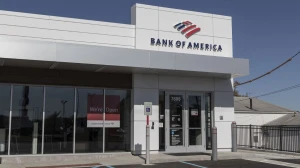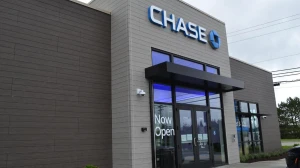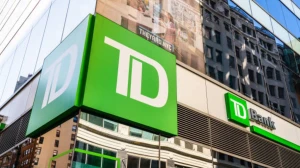
What is a Sweep Account? How Does a Sweep Account Work?
A sweep account automatically moves excess funds from a checking account into higher-interest investments, maximizing returns.
by Sangamithra
Published Sep 11, 2023 | Updated Sep 11, 2023 | 📖 6 min read
What is a Sweep Account?
A sweep account is a financial tool offered by banks and brokerages that automatically transfers excess cash from a checking account into a higher-interest investment, typically a money market fund, at the end of each business day. This allows individuals and businesses to maximize returns on their idle cash by ensuring it doesn't sit in low-interest accounts.
Sweep accounts are particularly useful for small businesses with daily cash flows and investors looking to earn more from their unutilized funds. However, it's essential to be aware of potential fees associated with these accounts, as they can impact the overall benefits.
How Does a Sweep Account Work?
A sweep account automatically transfers excess cash from a checking account into a higher interest-earning investment option, typically a money market fund, at the end of each business day. This process minimizes cash drag and ensures that money doesn't sit idle in a low-interest account, allowing it to earn higher returns while maintaining liquidity.
Sweep accounts are available for both personal and business use, with the latter helping companies optimize their cash reserves while covering daily expenses. However, it's important to watch for potential fees associated with sweep accounts, as they can offset the benefits of higher returns.
Extended Insurance Sweep Deposit Account
The Extended Insurance Sweep Deposit Account (ESDA) is a program offered by E*TRADE Securities LLC (Securities) that automatically transfers available cash balances from customers' brokerage accounts to deposit accounts at various Program Banks.
ESDA aims to provide FDIC insurance coverage for these balances, offering up to $500,000 in coverage for individual accounts and $1,000,000 for joint accounts. While individual deposit accounts are not opened at Program Banks, the program offers flexibility for eligible account types.
ESDA Program balances earn interest, subject to fluctuation, and are administered by Reich & Tang Deposit Solutions LLC. Customers can exclude specific Program Banks, but allocation among them is determined by a ranking process. The agreement outlines the terms, tax considerations, and customer responsibilities associated with the ESDA Program.
What is the Benefit of Sweep Account?
The benefit of a sweep account lies in its ability to maximize the earnings on available funds while minimizing manual intervention. Here are the benefits of sweep accounts:
Automated Cash Management: Sweep accounts automatically transfer excess funds into higher interest-earning options, typically money market funds, at the end of each business day. This ensures that your money isn't idly sitting in a low-interest account.
Capitalizing on Higher Interest: By swiftly moving idle cash into investment vehicles with better interest rates, sweep accounts help avoid "cash drag" and ensure your money is working to earn returns.
Convenience: Sweep accounts require minimal personal intervention, making it convenient for individuals and businesses. You don't have to constantly monitor your cash balance or manually move money to optimize returns.
Liquidity: Despite the higher interest rates, the funds in sweep accounts remain relatively liquid, allowing you to access your money when needed.
Business Cash Flow Management: For businesses, sweep accounts are invaluable in managing daily cash flows. They allow companies to earn interest on excess cash reserves while ensuring sufficient liquidity to cover expenses.
Regulatory Compliance: Sweep accounts were originally created to navigate regulations that prohibited interest on checking accounts. They offer a compliant way to earn interest on cash holdings.
What is the Difference Between Personal and Business Sweeps?
Sweep accounts are financial tools that help individuals and businesses optimize their cash management by automatically transferring excess funds into higher-interest investments. However, there are distinctions between personal and business sweep accounts. Here are the key differences:
|
Aspect |
Personal Sweeps |
Business Sweeps |
|
Purpose |
Typically used by individuals to manage personal funds, dividends, and cash deposits. |
Used by businesses, especially small businesses, to maximize returns on excess cash while ensuring liquidity. |
|
Account Structure |
Linked to individual's investment account. Transfers funds based on preset minimum balance. |
Linked to the company's main checking account. Funds are swept into a higher-interest investment when balance exceeds a minimum threshold. |
|
Sweep Process Timing |
Funds are moved into high-interest holding accounts or money market funds until the owner decides how to invest the money. |
Set daily from the checking account, with potential delays when returning funds. Some banks offer high-interest rates on balances above thresholds. |
|
Auto-Sweep Feature |
Some institutions offer auto-sweep features that automatically initiate transfers when specific thresholds are crossed. |
Some institutions offer an auto-sweep feature, ensuring transfers occur automatically based on preset limits. |
|
Common Use Cases |
Efficiently manage personal savings, emergency funds, and investment dividends. |
Maximize returns on business funds, cover daily expenses, and ensure cash flow without sacrificing earnings. |
Is It Possible to Make Withdrawals From the Sweep Account?
Yes, an individual can make withdrawals from a sweep account. They can usually do so through online banking, mobile banking apps, in-person at a bank branch, at an ATM (if their sweep account is linked to a debit card), or via phone banking.
It's important to note any applicable fees and minimum balance requirements associated with withdrawals and refer to their specific bank's policies for precise details on how to make withdrawals from their sweep account.
Is It Secure to Keep Money in Sweep Accounts?
Yes, sweep accounts are generally considered secure, as banks and other financial institutions provide them with robust regulatory oversight. Nevertheless, like any investment or financial product, there are inherent risks involved.
It is crucial to thoroughly comprehend the terms and conditions of your sweep account before investing to ensure security and align with your financial objectives.
Is the Cash Held in a Sweep Account Covered by FDIC Insurance?
Cash held in a sweep account may or may not be covered by FDIC insurance, depending on the brokerage's specific policies. Some brokerages sweep uninvested cash into Federal Deposit Insurance Corp (FDIC)-insured accounts, which means that the government will reimburse account holders up to $250,000 in the event of a bank failure.
However, individuals should check their brokerage's terms and conditions, as not all brokerages sweep funds into FDIC-insured accounts, and some may offer a choice between insured and uninsured accounts.
Additionally, it's important to note that FDIC insurance typically applies once the funds have been deposited into an FDIC-insured account at a partner bank, and they may not be covered while in transit to the bank. Therefore, understanding the insurance coverage of a sweep account is essential for ensuring the safety of one's funds.
What is a Sweep Account - FAQs
1. What is a sweep account?
A sweep account automatically moves excess cash into higher-interest investments, optimizing returns while maintaining liquidity.
2. How do personal and business sweeps differ?
Personal sweeps are for individuals' funds, while business sweeps help companies maximize returns on excess cash.
3. Can I make withdrawals from a sweep account?
Yes, you can make withdrawals from a sweep account through various banking channels.
4. Are sweep accounts secure?
Sweep accounts are generally secure, but understanding their terms and risks is essential.
5. Is cash in a sweep account FDIC-insured?
Cash in a sweep account may or may not be FDIC-insured, depending on the brokerage's policies and partner banks.




